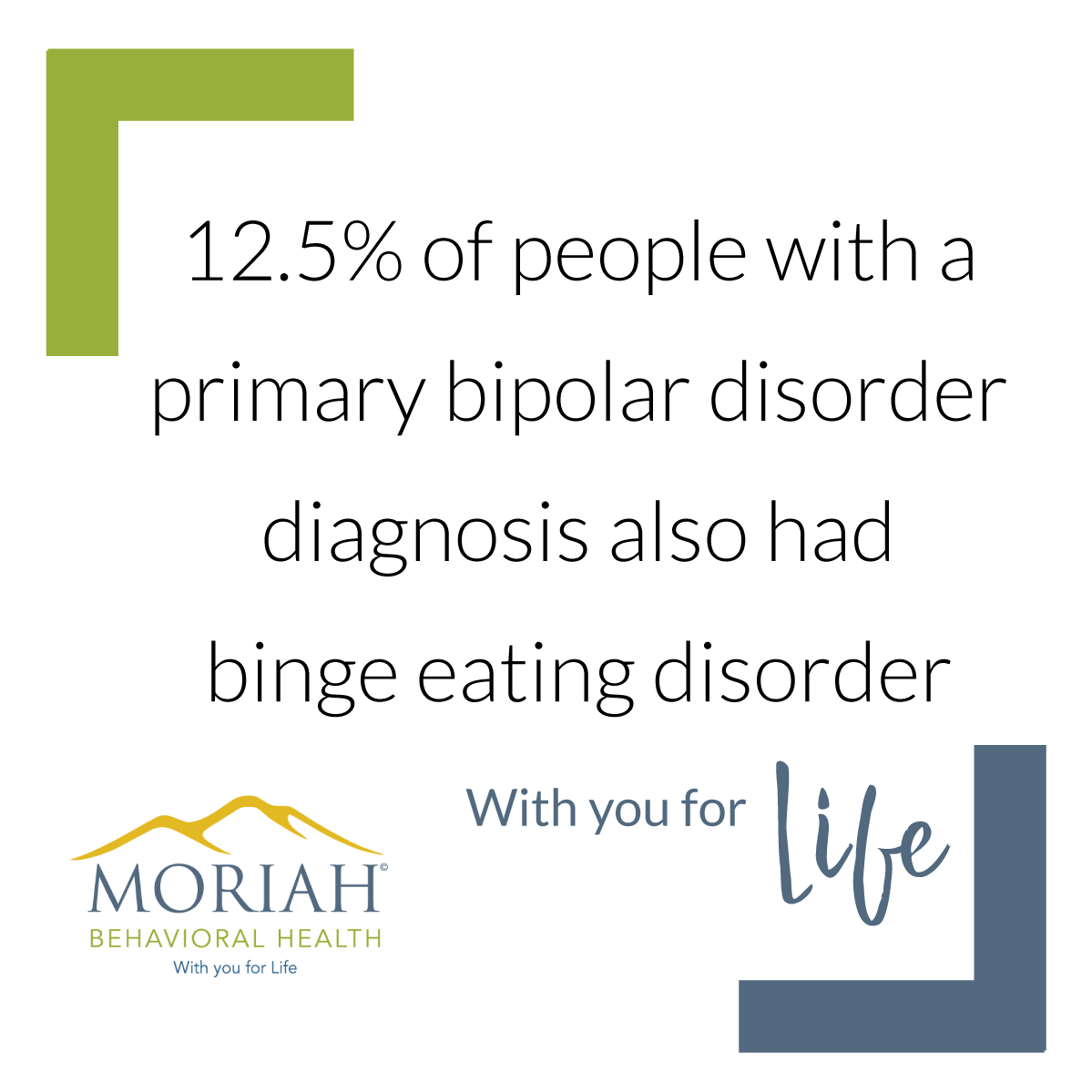Binge eating disorder is an eating disorder that involves eating large amounts of food in short amounts of time, even when they may not be hungry. Often these episodes are accompanied by feelings of guilt, disgust, embarrassment, or shame. While binge eating disorder can, and often does, occur on its own, approximately 30% of people with bipolar disorder also experience episodes of binge eating.
While the connection has not yet been definitely explained, some experts have suggested connections through genetics and self-soothing. For a more complete list of possible explanations, please visit the source article (https://tinyurl.com/yb4ja5u9).
Genetics
Both bipolar disorder and binge eating have been linked to the same genetic variations. The specific gene influences many processes in the body and may be involved in regulating energy levels as well as food.
Self-Soothing
For many teens, feelings and food can be tied together. For some, food can offer excitement, shame, or comfort. When dealing with a mood disorder that affects emotions, some times may try to use food to respond to those emotions.
In the future, there is hope for a better understanding of both diagnoses and how they may affect one another. An important fact is that both are treatable. Whether bipolar disorder and binge eating disorder are both affecting your teen, or only one is, there are many therapeutic programs that are available to help them manage the diagnoses and get back on track in their lives.
Source: https://tinyurl.com/2ujrtkyj
Statistics: https://pubmed.ncbi.nlm.nih.gov/33227671/
